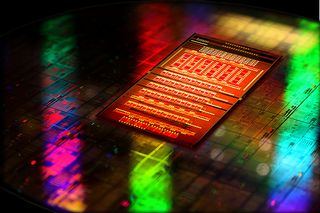OEMs to Spend More on Chips for Wireless than for PCs
It is yet another sign of how significant the mobile industry has become in the overall IT landscape.

IHS said that OEMs will be spending more money on chips for wireless devices than for the general computer this year.
Fueled by the strong demand for smartphones, semiconductor purchases for wireless devices will add up to $55.4 billion this year and climb by 10.7% from $50.1 billion in 2010. Semiconductor purchases for computers will be up by only 1.2% to $53.1 billion, IHS estimates.
“Led by Apple’s iPhone and iPad, demand is booming for smart phones and tablet devices,” said Wenlie Ye, analyst for semiconductor design and spending at IHS. “This is spurring a surge in sales of semiconductors used in wireless devices, including baseband chips, applications processors and mobile memory. With overall sales growth for PCs slowing, the balance of power in the semiconductor industry is shifting toward the wireless segment.”
IHS noted that Apple recently surpassed HP as the world's largest semiconductor buyer. However, the companies allocate their budget differently. Apple spent about 61% of its chip budget in 2010 on wireless products such as the iPhone and iPad, while HP spent 82% on computer products such as desktops, notebooks and servers.
"Thus, the supremacy of wireless as an OEM semiconductor spending category also is partly a consequence of Apple’s domination of hot mobile markets—and its primacy in the electronics supply chain," IHS said. Apple will be increasing its lead in semiconductor purchasing over HP in 2011 and 2012, the market research firm predicts.
Stay on the Cutting Edge
Join the experts who read Tom's Hardware for the inside track on enthusiast PC tech news — and have for over 25 years. We'll send breaking news and in-depth reviews of CPUs, GPUs, AI, maker hardware and more straight to your inbox.
-
CaedenV This isn't surprising when you have 1 processor, and one central chip that handles about everything else for the device. Then you need a GPS, wifi B/G/N, 3G, 4G, Bluetooth, wirelessUSB, IR, (and I feel like I am still missing something); But you get the point, when your wireless chips outnumber your other necessary chips then Yes, you will spend more money on 'wireless' chips.Reply -
bustapr with millions of people upgrading their iphones and android phones every generation(every year) its obvious that OEMs are going to spend more money making phone chips for the masses. PCs are usually upgraded when they break down(non enthusiasts)which can be up to a few years and even then phones have become the new PCs. I just hope that more money goes into developing new tech for PCs, phones are already ridiculously powerful enough for what they are.Reply -
alidan bustaprwith millions of people upgrading their iphones and android phones every generation(every year) its obvious that OEMs are going to spend more money making phone chips for the masses. PCs are usually upgraded when they break down(non enthusiasts)which can be up to a few years and even then phones have become the new PCs. I just hope that more money goes into developing new tech for PCs, phones are already ridiculously powerful enough for what they are.Reply
i don't fit into what is traditionally an "enthusiast" category, mainly because that category is populated with people who get the best and have no need for it. but upgrading a computer when it breaks... even my pc illiterate parents upgrade their pcs before they break -
agnickolov Notebooks and netbooks also use wireless chips, so there's an overlap between the two. A better comparison would be between wireless chips and computational chips - this includes CPUs and GPUs in every category including microcomputers and cell phones.Reply -
eddieroolz Well that's kind of obvious. Most of us have a computer; many of us still don't have a smart device.Reply -
agnickolov, I'm pretty sure the term "wireless" in the context of his article referrers to mobile phones. It wouldn't make sense to compare the cost of a wireless "chip" with the cost of a pc. It means that OEMS pay more money to make phone cpus than desktop cpus.Reply
Most Popular

